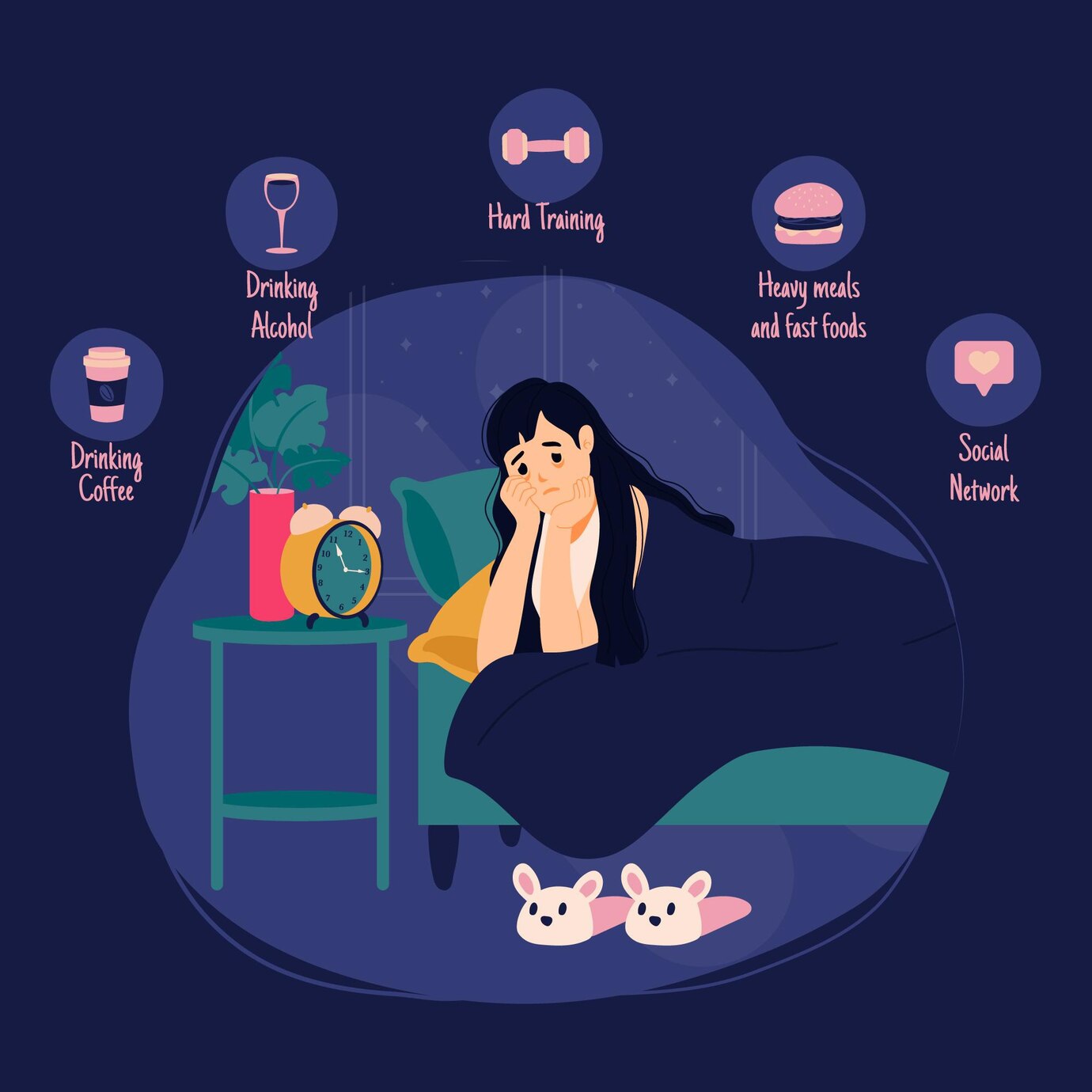In the fast-paced world we inhabit, the symbiotic relationship between sleep and mental health is undeniable. This blog aims to unravel the intricate connections between the two and provide actionable tips for achieving better sleep, subsequently nurturing improved mental well-being.
1. Understanding the Sleep-Mental Health Nexus:
- Reciprocal Relationship: Quality sleep influences mental health, and mental health, in turn, affects sleep patterns.
- Impact on Emotional Resilience: Sleep deficiency can lead to increased stress, anxiety, and a compromised ability to cope with daily challenges.
2. Sleep Hygiene: Foundational Pillars for Quality Sleep:
- Consistent Sleep Schedule: Aligning sleep patterns with a consistent schedule regulates the body’s internal clock.
- Optimal Sleep Environment: Creating a dark, quiet, and cool sleep space promotes uninterrupted rest.
3. The Role of Nutrition in Sleep and Mental Wellness:

- Balanced Diet: Nutrient-rich foods contribute to hormonal balance, fostering better sleep and mood regulation.
- Caffeine and Sugar Management: Restricting caffeine and sugar intake, especially close to bedtime, positively impacts sleep quality.
4. Exercise as a Catalyst for Better Sleep:

- Timing Matters: Regular exercise, preferably in the morning or early afternoon, enhances sleep quality.
- Outdoor Activities: Exposure to natural light during the day positively influences circadian rhythms.
5. Stress Management Techniques for Improved Sleep:
- Mindfulness Meditation: Practices like mindfulness and meditation alleviate stress, promoting relaxation for better sleep.
- Journaling: Expressive writing helps process emotions, reducing the mental clutter that can interfere with sleep.
6. Technology’s Impact on Sleep and Mental Well-being:
- Blue Light Awareness: Limiting screen time before bedtime reduces exposure to blue light, which can disrupt the body’s natural sleep-wake cycle.
- Digital Detox: Designating specific times for digital detoxes promotes a mental environment conducive to rest.
7. Sleep Disorders and Mental Health:
- Identifying Sleep Disorders: Recognizing signs of disorders like insomnia and sleep apnea is crucial for seeking appropriate intervention.
- Professional Guidance: Consulting healthcare professionals for personalized advice and treatment options.
8. The Importance of Consistent Wake-Up Times:

- Morning Routine: Establishing a consistent wake-up time contributes to overall sleep consistency.
- Sunlight Exposure: Natural light exposure in the morning reinforces circadian rhythms.
9. Relaxation Techniques Before Bed:
- Breathing Exercises: Incorporating deep breathing exercises signals the body to transition into a relaxed state.
- Progressive Muscle Relaxation (PMR): Tension-release techniques prepare the body for restful sleep.
10. Seeking Professional Support:
- Psychological Therapies: Cognitive Behavioral Therapy for Insomnia (CBT-I) and other therapeutic approaches target sleep-related concerns.
- Medication Consideration: In some cases, medication may be prescribed under the guidance of a healthcare professional.
Conclusion: As we traverse the demanding landscape of modern life, prioritizing the harmonious relationship between sleep and mental health becomes paramount. By implementing these comprehensive tips, we not only cultivate restful nights but also nurture the foundation of robust mental well-being. Remember, the journey to better sleep and mental health is a gradual process, and each small change contributes to the overall tapestry of well-being. Sweet dreams and resilient minds await those who embark on this transformative voyage.


